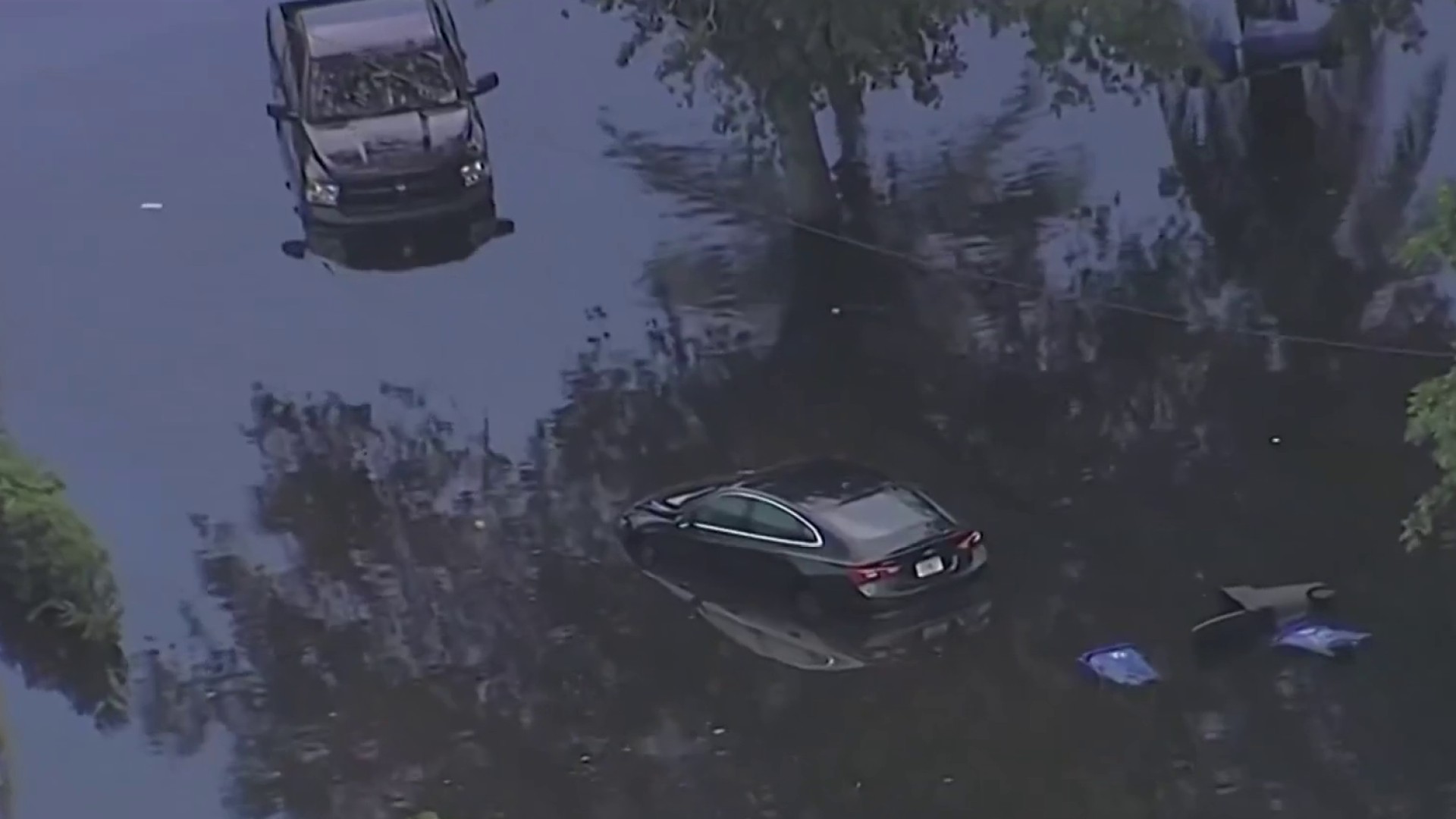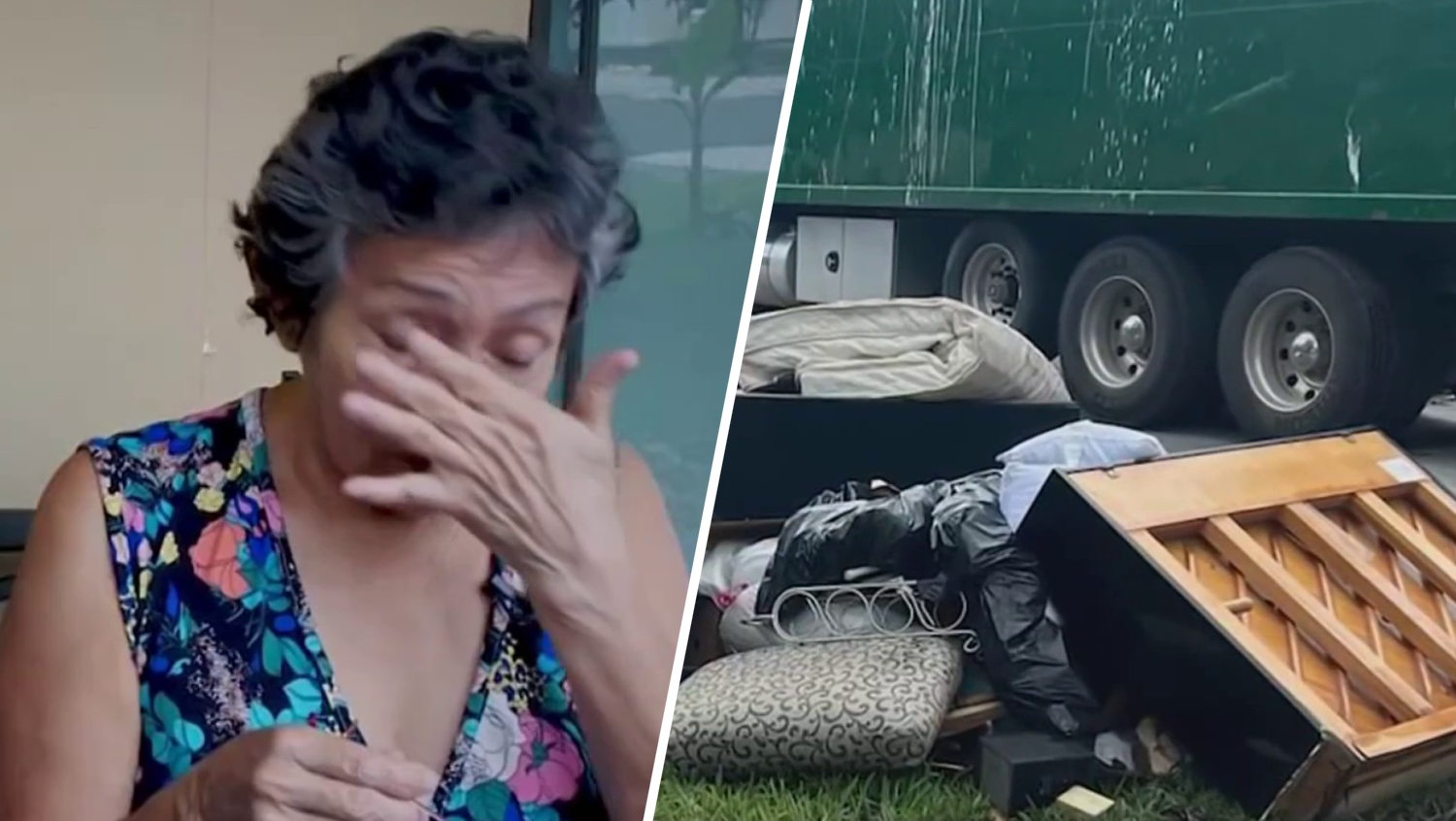From vape pens to AirPods and toys, so many of the electronic products we use today are powered with lithium batteries, and when they are not disposed of properly, they can be a fire danger.
A 2021 report from the EPA found more than 200 fires reported at waste facilities across the country have been associated with lithium-ion batteries. The report notes the number of facilities affected is “likely much higher” because these fires are “severely underreported.”
Dawn McCormick of Waste Management, a company that handles residential trash and recycling pickup for many communities in Florida, says they are seeing an uptick in fires across the state.
"About one fire a week here in Florida in our trucks and also about one fire a week in our recycling facilities," McCormick said.
Get South Florida local news, weather forecasts and entertainment stories to your inbox. Sign up for NBC South Florida newsletters.
McCormick says products with lithium-ion batteries are to blame in many cases.
During our visit to the Reuters recycling facility in Pembroke Pines, we saw several potential fire hazards among the recyclables, including a propane tank, a power washing machine, and battery-powered toys.
In the past three years, the city’s fire department has responded to nine fire incidents at this facility.
Responds
Responding to every consumer complaint
In Miami, a fire broke out at a waste management site that recycles construction and demolition material in December. It was started by a lithium battery and some flammable roofing glue, which helped fuel the fire, according to the company's own investigation.
Lieutenant Mike Adams, a fire investigator with Miami-Dade Fire Rescue, says that while they are not seeing a significant increase in this type of fires, there is a growing concern because of the widespread use of lithium batteries.
"They are seeing those show up in the landfills and the recycling plants," he said.
In Palm Beach County, the Solid Waste Authority told NBC6 there have been 10 fires at their facilities and in trucks from December 2021 to March 2023. Most incidents were small and controlled early, preventing larger fires.
But the consequences of such fires can be very costly and put a hold on trash and recycling pickup.
"Across the country, we have had facilities, recycling facilities be total losses, millions of dollars in infrastructure. We had a fire at our Tampa facility about three or four years ago. That plant was down for about three months," McCormick said.
That’s why prevention is key.
McCormick says innovative systems like fire rovers are being deployed, offering 24/7 monitoring and immediate action to douse hot spots before they flare into full-blown fires at these facilities.
But it can be avoided if we do our part.
"If residents and businesses do the right thing in the first place and don't put household hazardous waste or batteries in the recycling or garbage, then we're preventing those fires and the safety and cost associated with it," McCormick said.
To do the right thing, you need to know where to dispose of lithium-ion batteries, devices containing them, or hazardous materials. You can find that information on your county's website. McCormick says you may be able to drop some of these items at big box stores, but you have to check with them first.



